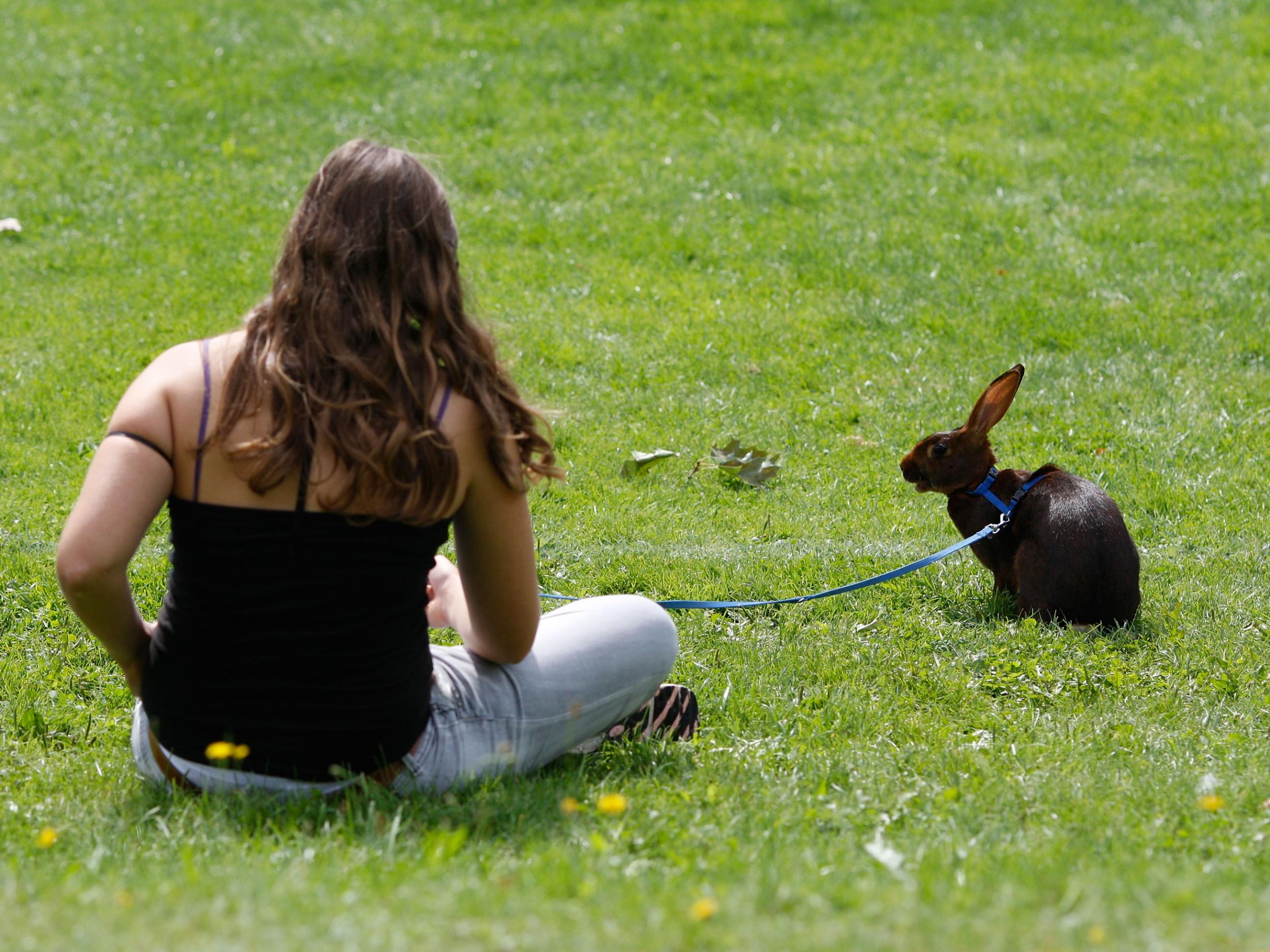Pet rabbits' brains have shrunk and reshaped due to domestication
Tame animals are not bothered by human presence because part of brain that senses fear has shrunk

Years of domestication have left their mark on rabbit brains, shrinking and restructuring them to reflect their relationship with humans.
Rabbits have been kept as a source of food since Roman times, but people only began keeping them as pets in 19th century France.
Despite this relatively short timeframe, domestic rabbits behave very differently to their wild counterparts – something Charles Darwin noted when he observed “no animal is more difficult to tame than the young of the wild rabbit; scarcely any animal is tamer than the young of the tame rabbit”.
While wild rabbits are terrified of everything, pet rabbits tend to be docile and happy to spend time in the company of humans.
To find out why different rabbits behave in such contradictory ways, the scientists examined the brains of rabbits as they grew in similar environments.
“In a previous study we reported that genetic differences between wild and domestic rabbits are particularly common in the vicinity of genes expressed during brain development,” said Dr Miguel Carneiro from the University of Porto, who co-led the research.
“In the present study we decided to use high-resolution MRI to explore if these genetic changes are associated with changes in brain morphology.”
The scientists raised two groups of eight rabbits – one wild and one domestic – and scanned their brains to look for changes that could explain their different personalities.
They found that not only did wild rabbits have larger brains in relation to their body size, key parts of domestic rabbit brains had both shrunk and expanded.
Crucially the amygdala of the pet rabbits – which senses fear – was far smaller, while the area that controls response to fear, the medial prefrontal cortex, had enlarged.
Domestic rabbits were also lacking in white matter, which suggests they are less able to process information.
“These differences in brain morphology make perfect sense in relation to the fact that domestic rabbits are less fearful and have an attenuated flight response compared with wild rabbits,” explained Professor Mats Fredrikson, a researcher at Uppsala University and one of the senior authors of the paper.
While wild rabbits have to be on constant guard for eagles, foxes and humans trying to kill them, the demands placed on domestic rabbits are far fewer. It also helps if they do not live in constant fear of the people who give them food and take care of them.
These findings did not come as a surprise to the researchers. Over the course of human history, we have guided the evolution of domestic animals by selecting individuals that are less aggressive and more tame.
However, this was the first research to so comprehensively link domestication with genetic changes that in turn remould the very architecture of animals’ brains.
“No previous study on animal domestication has explored changes in brain morphology between wild and domestic animals in such depth as we have done in this study,” said Dr Leif Andersson of Uppsala University.
Besides helping scientists understand the processes by which we turn wild animals into pets, the study – published in the journal Proceedings of the National Academy of Sciences – provide an insight into the brain mechanisms underpinning animals’ response to fear.
Join our commenting forum
Join thought-provoking conversations, follow other Independent readers and see their replies
Comments